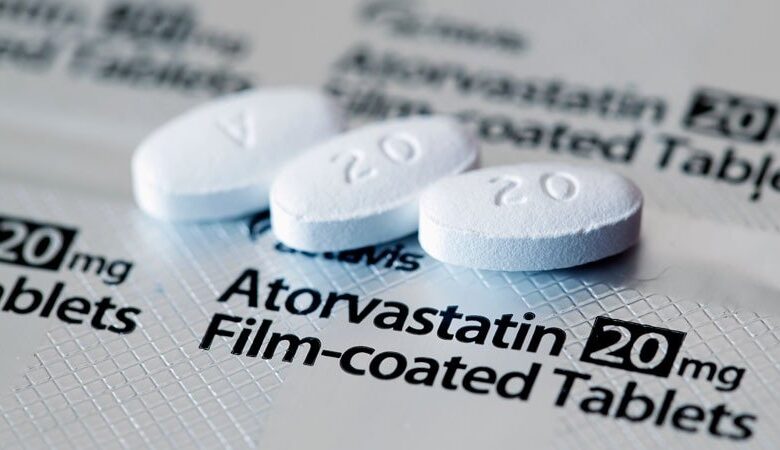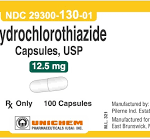What Are The Most Common Side Effects Of Atorvastatin?

Atorvastatin is in a class of medications called HMG-CoA reductase inhibitors (statins). It works by slowing the production of cholesterol in the body to decrease the amount of cholesterol that may build up on the walls of the arteries and block blood flow to the heart, brain, and other parts of the body.
Atorvastatin is used together with diet, weight loss, and exercise to reduce the risk of heart attack and stroke and to decrease the chance that heart surgery will be needed in people who have heart disease or who are at risk of developing heart disease. Atorvastatin is also used to decrease the amount of fatty substances such as low-density lipoprotein (LDL) cholesterol (‘bad cholesterol’) and triglycerides in the blood and to increase the amount of high-density lipoprotein (HDL) cholesterol (‘good cholesterol’) in the blood. Atorvastatin may also be used to decrease the amount of cholesterol and other fatty substances in the blood in children and teenagers 10 to 17 years of age who have familial heterozygous hypercholesterolemia (an inherited condition in which cholesterol cannot be removed from the body normally).
How should atorvastatin be used?
Atorvastatin comes as a tablet to take by mouth. It is usually taken once a day with or without food. Take atorvastatin at around the same time every day. Follow the directions on your prescription label carefully, and ask your doctor or pharmacist to explain any part you do not understand. Take atorvastatin exactly as directed. Do not take more or less of it or take it more often than prescribed by your doctor. Your doctor may start you on a low dose of atorvastatin and gradually increase your dose, not more than once every 2 to 4 weeks.
Continue to take atorvastatin even if you feel well. Do not stop taking atorvastatin without talking to your doctor.
What are the most common side effects of atorvastatin?
The most common side effects of atorvastatin are headaches, feeling sick (nausea), diarrhoea and cold-like symptoms. Do not take atorvastatin if you’re pregnant, trying to get pregnant or breastfeeding. Keep taking atorvastatin even if you feel well, as you will still be getting the benefits.
The list of atorvastatin side effects is presented below:
• diarrhea
• heartburn
• gas
• joint pain
• forgetfulness or memory loss
• confusion
Some side effects can be serious. The following symptoms are uncommon, but if you experience any of them, call your doctor or get emergency medical help immediately:
• muscle pain, tenderness, or weakness
• lack of energy
• fever
• chest pain
• nausea
• extreme tiredness
• weakness
• unusual bleeding or bruising
• loss of appetite
• pain in the upper right part of the stomach
• flu-like symptoms
• dark colored urine
• yellowing of the skin or eyes
• rash
• hives
• itching
• difficulty breathing or swallowing
• swelling of the face, throat, tongue, lips, eyes, hands, feet, ankles, or lower legs
• hoarseness
Atorvastatin may cause other side effects. Call your doctor if you have any unusual problems while taking this medication.
If you experience a serious side effect, you or your doctor may send a report to the Food and Drug Administration’s (FDA) MedWatch Adverse Event Reporting program online (http://www.fda.gov/Safety/MedWatch) or by phone (1-800-332-1088).
Atorvastatin Safety Information
Serious drug interactions can occur when certain medicines are used together with atorvastatin. Tell each of your healthcare providers about all medicines you use currently, and any medicine you start or stop using. Stop taking this medication and tell your doctor right away if you become pregnant. This medication can cause the following problems:
Muscle problems warning: Your risk for rhabdomyolysis (muscle breakdown) is increased while taking atorvastatin. The risk is greater if you’re a senior, have thyroid problems, or have kidney disease. Tell your doctor right away if you start to have unexplained muscle soreness, pain, or weakness.
Liver problems warning: Lab tests for your liver may be abnormally high while you’re taking atorvastatin and you may have liver problems. Your doctor will monitor this while you’re taking this drug.
Diabetes warning: Atorvastatin may increase your blood sugar levels. You and your doctor should monitor your blood sugar levels carefully while you’re taking this drug.





